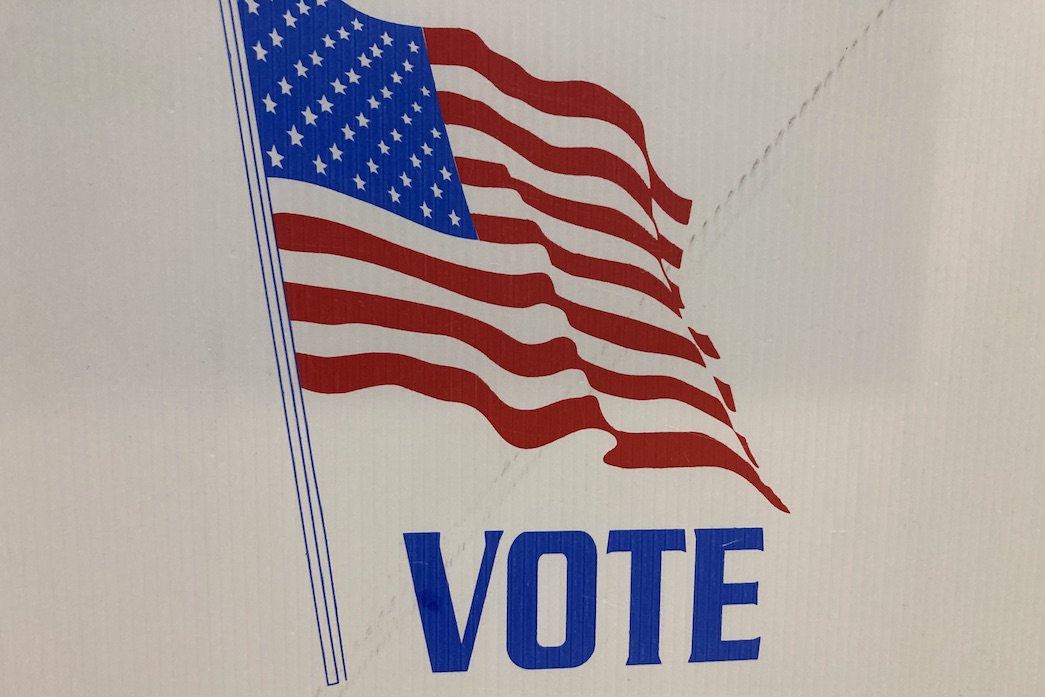 Record 35 Desis running from Arizona to Wisconsin; ‘Samosa’ caucus set to grow bigger
Record 35 Desis running from Arizona to Wisconsin; ‘Samosa’ caucus set to grow bigger
As America headed to the polls Tuesday for crucial midterms with control of the House and Senate at stake, both Democrats and Republicans were wooing Indian American and Asian voters in many battle ground states.
Vice President Kamala Harris, the first Indian and African American holding the second most powerful job in the US, Sunday headlined a ‘Get Out The Vote’ event Sunday engaging the Asian American, Native Hawaiian and Pacific Islander (AANHPI) voters in Chicago.
“The Asian American voter turnout in the 2020 election is a very big part of why I’m the Vice President of The United States,” Harris said at the event o-hosted by AAPI Victory Fund and Chicago’s famous improvisational comedy club, The Second City.
Read: Election 2022: Desis galore running from Arizona to Wisconsin (November 6, 2022)
“Inclusion and representation matter and members of the Administration should reflect the communities that are impacted, being impacted, and are believers of this country,” she said.
Joining Harris were Indian American Rep. Raja Krishnamoorthi from Illinois, Cincinnati Mayor Aftab Pureval, as well as AANHPI leaders, elected officials, artists, and community leaders.
AANHPI voters, who were the margin of victory in several key battleground states in 2020, once again have the power to determine elections up and down the ticket, according to the AAPI Victory Fund.
AAPI Victory Fund Founder and Chairman Shekar Narasimhan reiterated the “power of the AANHPI vote and the power of representation at every level of government.”
Meanwhile, in Philadelphia, Indian American Impact hosted a ‘South Asian Women Get Out the Vote’ event headlined by Rep. Pramila Jayapal, celebrity chef and host Padma Lakshmi and vice president’s niece Meena Harris.
“We knocked 2,000+ doors yesterday in Pa’s South Asian communities and reached hundreds of thousands through WhatsApp & the audience of volunteers like Padma Lakshmi, Pramila Jayapal and Meena Harris,” tweeted Neil Makhija, executive director of Indian American Impact
Sunday’s political canvassing stressed one major point to every person who answered the door: your vote matters, and can make a difference in this election.
Makhija told The Philadelphia Inquirer that the South Asian American community “can make the margin in Georgia, Pennsylvania, North Carolina, Arizona, Texas — all of these states.”
Noting that until recently there hasn’t been any South Asian-focused voter turnout efforts, he said the nonprofit he leads is “finally building that.”
Meanwhile, according to a Washington Post report the White House has been highlighting Indian Americans as a group that’s thriving in President Joe Biden’s America.
Read: Indian Americans in race for 2022 mid-term elections (November 6, 2022)
“Ahead of midterm elections that could be decided by razor-thin margins, Democrats are hoping to capitalize on some of the optimism felt by Indian Americans, a growing and increasingly vital bloc of voters,” it said in a report last week.
With nearly four million people of Indian descent in America, the community is now primed to “punch above its weight” when it comes to politics, as it has in other spheres including business and science, Narasimhan told the Post.
A record 35 Desi candidates are running in the high stakes midterm elections from Arizona to Wisconsin to have a say in the affairs of their new homeland.
At the federal level, eight Indian American candidates are running for seven House seats with incumbent Democrat Ro Khanna engaged in a contest with Republican Ritesh Tanden. There are no Desi candidates for the Senate.
All the four current members of the ‘Samosa caucus’ – as the Desi lawmakers in the Congress have nicknamed themselves – Ami Bera and Ro Khanna (California), Raja Krishnamoorthi (Illinois) and Premila Jayapal are sitting pretty, according to poll forecasts.
Poll watchers also give a good chance to Belgaum, India-born self-made millionaire Shri Thanedar, 67, in Michigan’s 13th Congressional District covering a chunk of Detroit, against Republican Martell Bivings, an African American.
Read: Election 2022: Indian American Impact launches WhatsApp tipline (November 4, 2022)
Election of Thanedar, who is now a Michigan state legislator and ran unsuccessfully for the Democratic party nomination for governor in 2018, would add a fifth member to the Samosa caucus.
In the states, Indian Americans would be watching with interest the gubernatorial contest in Maryland where Andhra Pradesh, India-born Aruna Miller, 57, is the running mate of Democratic candidate Wes Moore.
Political observers give the Moore-Miller ticket a strong chance of defeating Republican rivals Dan Cox and Gordana Schifanelli, in a state where Democrats outnumber Republicans 2-to-1.
If elected, Miller, a transportation engineer by profession and a former member of the Maryland House of Delegates, would become the state’s first Asian-American lieutenant governor and the first immigrant to be elected to statewide office in Maryland.
A dozen Indian Americans are running for State assemblies in Florida, Georgia, Illinois, Iowa, Maryland, Michigan, New Hampshire Ohio and Pennsylvania.
Six more are trying their luck in State Senates in Arizona, Michigan, Vermont and Washington. Nine others are vying for elective offices with Republican Harry Arora running for State Treasurer in Connecticut and Sim Gill for District Attorney in Salt Lake County, Utah.
All but three or four of the 35 Indian American candidates in the fray are Democrats.
Read: Election of another Indian American candidate to US Congress almost certain (October 25, 2022)
Health care, jobs and the economy, crime, education, gun control, environment, voting rights and addressing racism are the top issues for Indian and other Asian Americans, according to a pre-poll survey.
More than three in four ranked all these as “extremely important” or “very important,” according to the survey by Asian and Pacific Islander American Vote (APIAVote), AAPI Data, and Asian Americans Advancing Justice.



